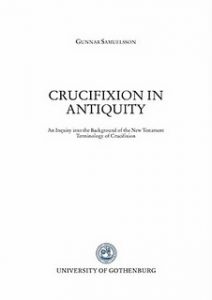 One still reads enlightened (or benighted) twenty-first century scholars asserting that there can be no purpose in life, no standard for morality, if we are “merely nothing more” than a set of chemicals and our minds the product of “nothing more than electro-chemical reactions”.
One still reads enlightened (or benighted) twenty-first century scholars asserting that there can be no purpose in life, no standard for morality, if we are “merely nothing more” than a set of chemicals and our minds the product of “nothing more than electro-chemical reactions”.
By couching the argument in the rhetoric of “merely” or “nothing more”, I am reminded of Douglas Adams’ famous quip:
If you try and take a cat apart to see how it works, the first thing you have on your hands is a non-working cat.
That our level of consciousness, aesthetics, ethics, and all that goes to make us the species we are, have evolved as the products of chemistry and physics is not something to be dismissed as a “merely” or a “nothing more”. It is a staggering, mind-blowing thing to grasp. What makes it so damn hard to get my mind around is my inability to comprehend the vastness of the time involved.
None of our abilities, apart perhaps from our language faculty, is a sudden or unique leap that stands in total isolation from everything else. Consciousness is not unique. We can see gradients of consciousness across various species. Social and personal rules of conduct, with punishments for breaches, are observed in many other species that live in social groups. There even seems to be some sort of aesthetic sense at work among bower birds who plant blue objects in a nest to impress a mate, and will notice if human vandalizes their efforts by relocating a blue peg in their nest, and will immediately restore the original layout.
I loved watching the magpies in my backyard in Australia. If a male found a particularly interesting grub or beetle, its female partner would only have to sing out and the male would bring it over for her to eat instead. A kookaburra agonized us all at the office one day by perching on our office window ledge and holding a struggling lizard in its beak. Why wouldn’t it eat the thing quickly and put it out of its misery? We waited some minutes till finally its partner flew up to stand beside him. We realized he had been waiting for her when he then gave her the lizard to eat. Our agonies over the distress of the lizard turned to “Ohhs!” on seeing this act of affection or love in another species. An ill mouse that could not make it up the ladder to its bed of tissues was soon covered in those tissues to keep it warm — its partner had dragged the tissues down and covered its ill mate with them.
Are all such animals “merely bunches of chemicals”? If in one sense they are, it only magnifies the grandeur and mystery of it all. We can either attribute all this to an imaginary being wrapped up in a mystery itself, or we can attribute it to the laws and evidence we see in operation around us. To my mind, the latter attribution is cause for the greater sense of awe and wonder. Being able to explain it all eventually will not rob us of any of this feeling. Continue reading “If we are “merely” a bunch of chemicals . . .”
Like this:
Like Loading...


